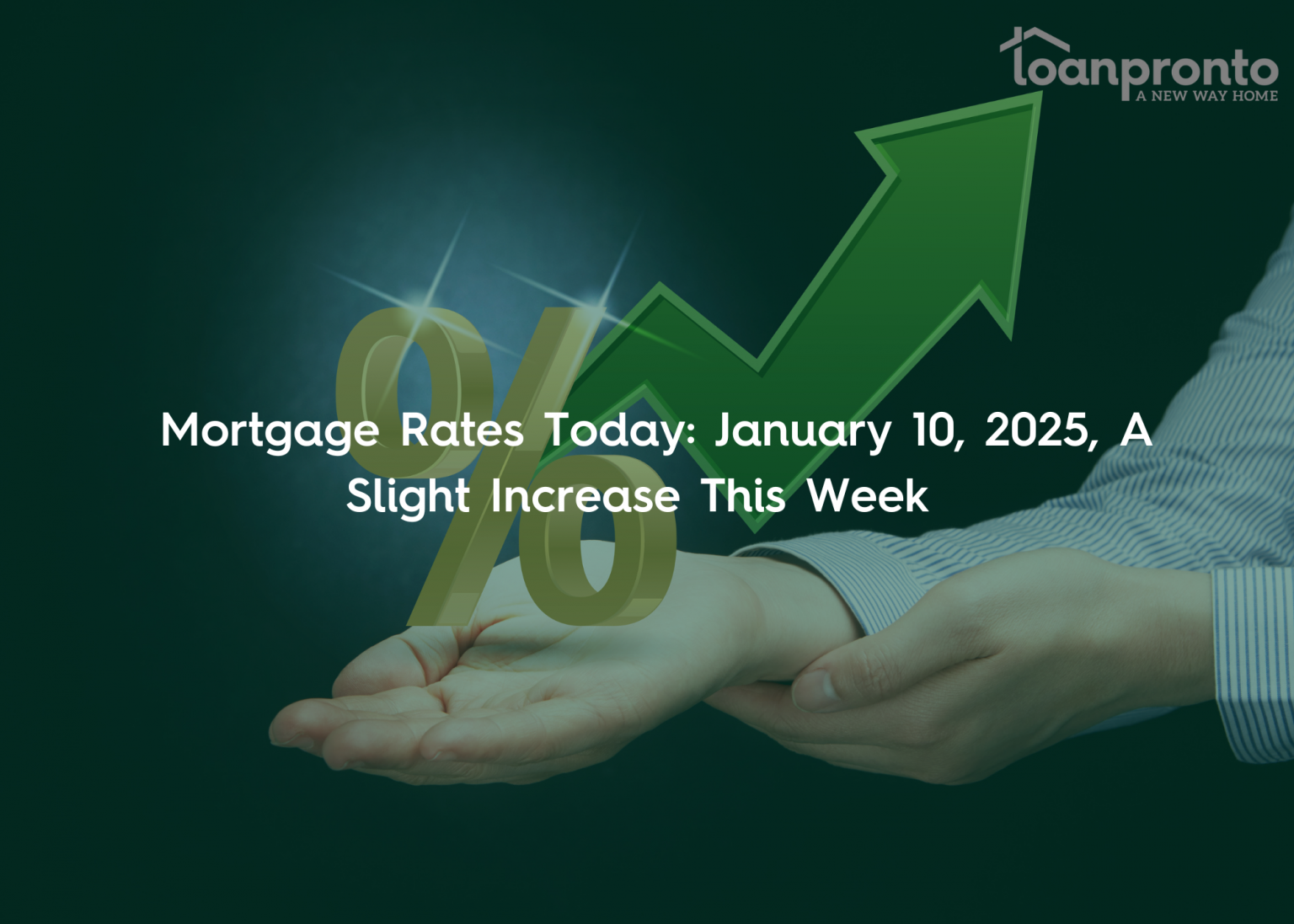The mortgage market saw an increase in rates this week from the preceding week. While it was not a dramatic change, it keeps the idea that the market is dynamic, and data can cause change at any moment as we move further into the new year. Mortgage rates are still attractive by historical standards. Whether you’re a potential homebuyer, a current homeowner considering refinancing, or a real estate professional helping clients navigate the market, it’s important to understand what’s driving these changes and what to expect moving forward.
Why Did Mortgage Rates Increase This Week?
This week’s uptick in mortgage rates was influenced by a combination of positive economic factors:
- Strong Job Market: Recent employment data revealed strong job creation and low unemployment, signaling a resilient economy.
- Consumer Spending: Elevated consumer spending numbers boosted investor confidence, nudging mortgage rates higher.
- Market Adjustments: With the economy performing well, markets are pricing in the possibility of sustained growth, which can lead to higher interest rates.
These factors collectively contribute to shifts in mortgage rates, reinforcing the importance of staying informed about economic trends.
What This Means for Homebuyers and Homeowners
Even with this slight increase, mortgage rates remain well below historical peaks, offering buyers and homeowners valuable opportunities. Here’s what you should consider:
- For Buyers: Now is a great time to lock in a rate before further market fluctuations. Waiting too long could mean higher costs in the future.
- For Homeowners: Refinancing is still an option to consolidate debt or lower monthly payments, even with the slight increase.
Looking Ahead: What’s Next for Mortgage Rates?
Next week, the market will likely react to several important economic updates, including:
- Inflation Data: One of the biggest drivers of mortgage rates, inflation reports will reveal whether price pressures are easing or persisting.
- Housing Market Activity: Reports on home sales, new construction, and housing starts could provide further insights into the demand for mortgages.
These data points will give a clearer picture of where the market is headed, helping both buyers and industry professionals strategize effectively.
Key Takeaways for Realtors
If you’re working with clients, here are some strategies to consider:
- Encourage Proactivity: Slight increases shouldn’t discourage buyers. Highlight the advantages of locking in today’s rates before further changes.
- Educate Clients: Keep your clients informed about upcoming economic reports and what they could mean for the mortgage market.
- Focus on the Big Picture: Remind clients that rates are still historically low, and opportunities for savings are abundant compared to previous years.
As we progress into 2025, staying informed about mortgage trends is more important than ever. While this week brought a slight increase, the current market still presents significant opportunities for buyers and homeowners alike. By keeping an eye on economic updates and market conditions, you can position yourself—or your clients—to make informed decisions in this evolving landscape.
| Product | Rate | Last Week | Change |
| 30-year fixed | 6.643% | 6.375% | ↑ 0.268 |
| 15-year fixed | 5.613% | 5.49% | ↑ 0.123 |
| 30-year FHA | 6.124% | 5.874% | ↑ 0.25 |
| 30-year VA | 6.124% | 5.874% | ↑ 0.25 |
DISCLAIMER:
ALL LOANS ARE SUBJECT TO CREDIT APPROVAL. INTEREST RATES ARE SUBJECT TO CHANGE DAILY AND WITHOUT NOTICE. CURRENT INTEREST RATES SHOWN ARE INDICATIVE OF MARKET CONDITIONS AND INDIVIDUAL QUALIFICATIONS AND WILL VARY UPON YOUR LOCK-IN PERIOD, LOAN TYPE, CREDIT SCORE, LOAN TO VALUE, PURPOSE, AND LENDING SOURCE.
DISCLAIMER: FOR NEW JERSEY PURPOSES, WE ARE NOT A LENDER AND CANNOT GUARANTEE THESE INTEREST RATES.
Presently, the 30-year fixed-rate mortgage sits at 6.643%, reflecting a rise of 26.8 basis points from the preceding week. Despite its interest rate being higher than that of the 15-year mortgage, the 30-year option is favored by many buyers for its advantage of providing more budget-friendly monthly payments.
15-year fixed-rate mortgages
The current interest rate for a 15-year fixed-rate mortgage is 5.613%, showcasing an increase of 12.3 basis points from the week prior. Choosing a 15-year mortgage enables borrowers to pay back their loan repayment quicker compared to the 30-year option. While this leads to increased monthly payments, it substantially diminishes the total interest paid over the loan’s duration.
Use our free mortgage and amortization calculators to calculate your monthly payment, including insurance, taxes, and interest.
No SSN required. Zero impact to credit. Your Information is never sold.
